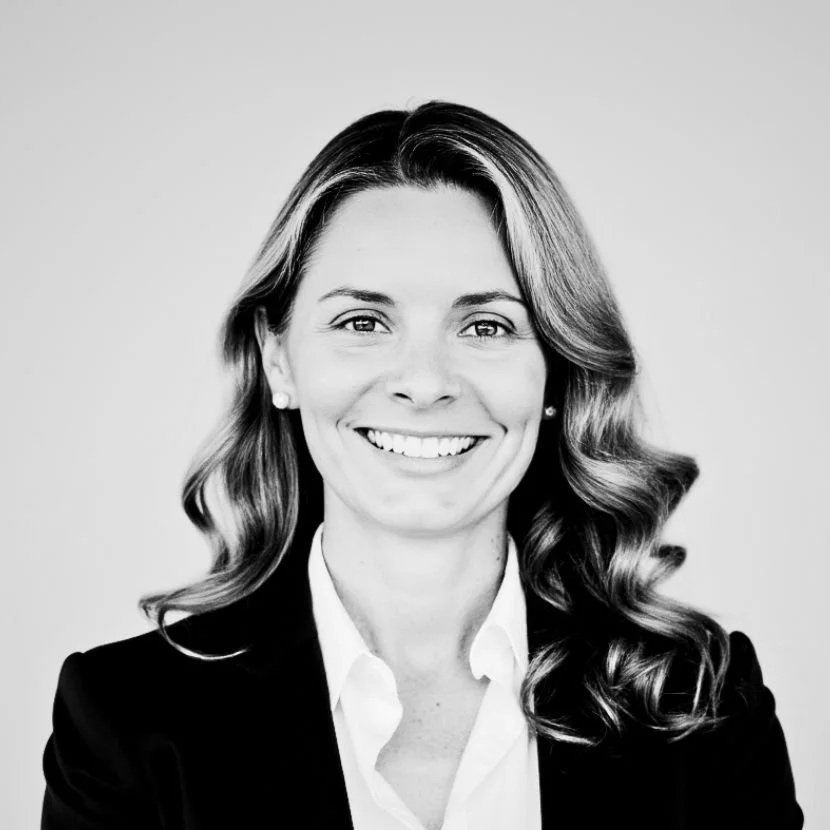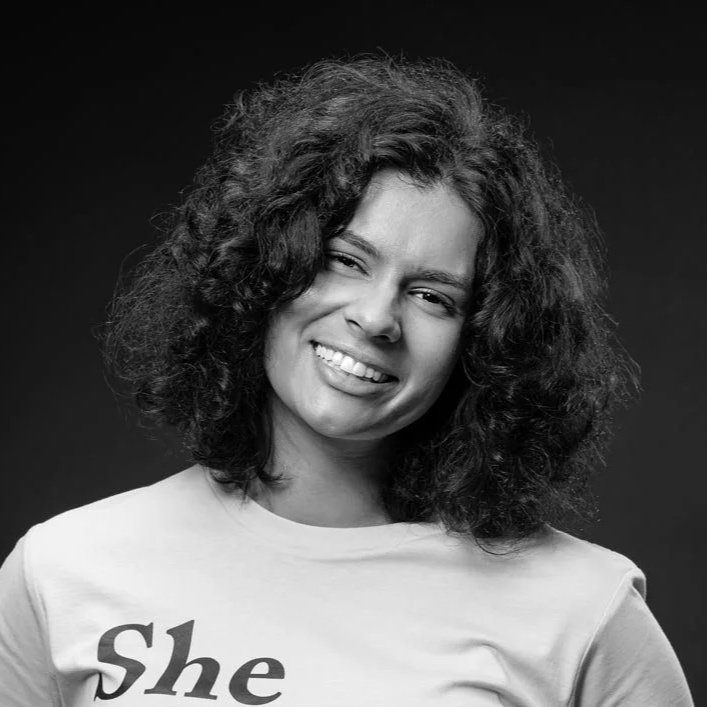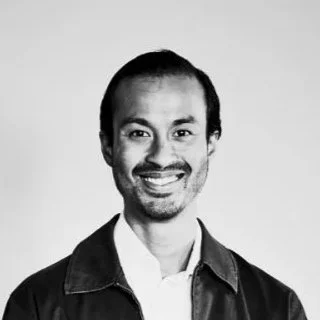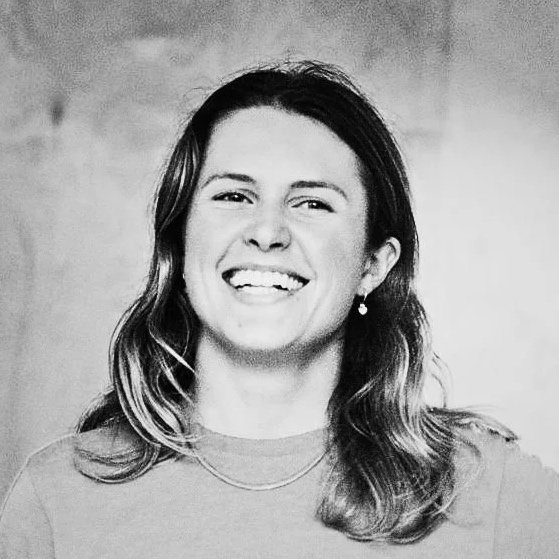Amanda Shepherd & Kelly Willmott On Enhancing Prospects For Incarcerated Australians Through Social Enterprise
With more than 25 years of experience in the design and advertising industry, Amanda Shepherd has successfully managed numerous large-scale design projects and advertising campaigns.
All of which have proven her ability to build and sustain productive internal and external client and stakeholder relationships. Her in-depth knowledge of the design and advertising industry has demonstrated initiative, a positive attitude and the ability to thrive within dynamic, challenging and changing environments. During Amanda’s career she has been responsible for the development and research of training materials and learning objectives, idea creation and strategy, as well as team management and employment.
Kelly Willmott has over two decades of experience in leading teams in media, corporate design, digital, packaging and publishing.
Kelly is driven to not only meet, but to exceed her goals and her exceptional attention to detail and service was key to her success in managing fast paced, award-winning teams before co-founding Green Fox Studio, including for Bauer Media, Jardine Lloyd Thompson and News Corp Australia. She is passionate about keeping abreast of current design trends and best practices, and is adept at communicating these trends and ensuring client satisfaction is achieved at all stages of the design lifecycle.
Amanda and Kelly of Green Fox Studio discuss tackling the divide in opportunities for incarcerated Australians and the current status of the social enterprise movement progressing into 2021.
Highlights from the interview (listen to the podcast for full details)
[Indio Myles] - To start off, could you please share a little bit about your backgrounds and what led to you both working in the social enterprise sector?
[Kelly Willmott] - We met about six years ago, and I was the head of creative with the board and meeting team in Queensland Media, where I was looking to replace one of my senior designers for a maternity contract. After a long search I came across Amanda, and we just hit it off straight away. We worked together for around seven or eight months before she left and started working with Work Restart and then started the program which is now Green Fox Studio.
During that time after she left, we kept in regular contact with each other, and we would always be speaking together and talking about how incredible the guys were out there, which led me to doing a presentation on the things that I look for in a design team. I guess [it was things] like what type of quality work they need to achieve.
During that time, I was just blown away by the dedication of all the guys in there. They were just amazing, and the quality of work was so inspirational. Then, Amanda and I started chatting about how we could make this a business and that's how it started.
[Amanda Shepherd] - It really was. In design teams, you often find that there's personalities that really click and you can really get amazing work done. I was fortunate enough to experience that in the team that I worked on with Kelly. Once that contract came to an end, I had been looking for something else outside what I traditionally viewed as my profession. I also had a bit of a struggle with chronic anxiety and depression for a period of time, and that led to me studying psychology in order to gain a deeper understanding of why the brain reverted to using a primitive lizard brain in terms of stress.
What that led me to was to actually become really focused on the therapeutic benefits of the role creativity has in assisting to overcome that trauma and to promote recovery.
I was really fortunate enough to meet Helen Black from Work Restart, and she had started working with corrections in order to bring social enterprise inside the prison system. Something really resonated with me about the whole concept of social enterprise and of actually conducting business for purpose. I was sold with Kelly and talking about how we could actually do something with our lives that can enable the next generation to be able to see that they can conduct business differently.
Amanda, that's really amazing there, touching on all of the mental health benefits of creativity, and from Kelly there it sounds like you guys have a really blossoming relationship. That speaks to some of the successes of Green Fox Studio. You both conduct a range of programs to rehabilitate incarcerated Australians. For our listeners, could you share some of your studios activities and projects that are providing opportunities for prisoners?
[Kelly Willmott] - Definitely. We do a huge range of things inside and we often get questioned on how does one creative agency do so much? Because so many creative agencies externally have a focus on what they do, whereas we do everything! That's because we get such a range of people inside with different talents and things that they want to do, and then we just nurture that and make sure that they can be the best at what they need to do. We download all the training for them, or we get the training for them and they've now got all this time inside that they can just focus on being the best at that thing.
Currently inside we're building our own offline learning platforms. It's already being built, but we're just modifying it now to really nail it down to a really good LMS system. The guys are building it themselves, and it's a three-month learning training platform. They’re doing that so it's built by prisoners, for prisoners. This is so it's easy to understand for people who haven't been across the creative industry before.
Within that they're learning graphic design as well. We have speakers that come in regularly and build training courses on things like working with white space and all those things that you need to know to be able to succeed in this business that we do. As I said, they learn all Adobe programs, such as Illustrator, Photoshop, InDesign and all the others.
We also do animation, so once they do those programs and show dedication, then they can choose where they want to go. They can move into animation, 3D modelling, or even virtual reality.
We have all the computers in there to be able to facilitate that, but we've also got coding happening inside. Currently we're building our own 3D software engine, which will be produced maybe in a couple of months. We're just in the process of building all our 3D models and then we've got copywriting.
One of the biggest things is that the guys that come and work with us in the studio, they are our business and so they're part of our business. Without us all contributing, Green Fox Studio will not survive. Amanda and I are the faces of the business, but the team there is really what gets the business moving.
Among all the stuff that we teach them, it includes learning computer skills, and they're also learning how to run the business
[Amanda Shepherd] - Also [they're learning to] work as a team. For a lot of these guys, they've never actually been able to contribute in that way. We've found for their personal growth that it has been hugely rewarding.
Such a wide range of activities that you have there at Green Fox Studio. It's a really amazing people-based approach to fixing those problems that incarcerated Australians face. Obviously as well, we're not talking about social enterprise if we're only talking about all the successes. In trying to deliver a positive impact within a prison, that would bring lots of challenges that you guys would have to navigate on a day to day basis. Briefly, could you outline some of these challenges and how would you overcome them when faced?
[Amanda Shepherd] - This is just a silly one, but with this heat wave that we're having, the first challenge is the fact that we work in a big shed and there's no air-con! That is a personal challenge that we have to overcome on a daily basis! But on that note, the prisoners are actually used to that, and so when we made the call to actually close the studio due to the heat on Friday, I had a bunch of them come up to me and say, "are we really going to close on Monday?" I said, "yes, it's expected to be about 40 degrees," and they continued saying, "I don't care, I'd rather be sitting in 40 degrees in a sauna and doing this because I just love it, then down there bored!"
That just demonstrates the people that we're working with and that dedication that Kelly had touched on at the beginning. But look, it does highlight the fact that a lot of these guys have this real stigma that they need to overcome when they're released.
Obviously having a criminal history is a huge deal, especially if you're trying to get a job within a corporate who more often than not do a criminal history check. When that comes up, you're rarely given the opportunity to explain yourself. They just say, "Oh right, they've spent time in prison. Okay, next person." I mean that's the most obvious thing, but secondly, there's that whole reintegration process, especially if people have been incarcerated for extended periods of time, coming back into the world is [difficult]. If you've been in jail for 20 years, imagine what it was like 20 years ago! I mean, that's probably your age Indio, but with mobile phones and everything, the whole world has changed.
[Kelly Willmott] - Even if it wasn't 20 years, even if it was just a couple of years, the progression of computers and software causes thing to change so quickly. We take that for granted because we're a part of it every day, so there's updates. We're constantly progressing and learning without really doing a course or anything.
But even from two years ago, it's all changed, and people then really start on the back foot. It's really important we get these skills in there and then we get them working on even with just MS Word to just do a basic job is really important.
[Amanda Shepherd] - That's something that we do. We aim to whether they come out as a graphic designer per se or not, the digital skills that we're providing them with are going to help when they get out, regardless of what that is. Just being in touch with digital technology is a help.
That's a really good point there about those challenges. I definitely think that everyone thinks of that challenge of stigma, but those other challenges are a bit less obvious to people that don't work with these people directly. I think it's also worth mentioning that Green Fox Studio was a part of Impact Boom's 2020 Elevate+ Program, which provided support to a cohort of social enterprises at different stages of their development and progression. What were some key insights you gained about Green Fox Studio and the sector as a whole?
[Kelly Willmott] - Look, for me, I've come from a corporate background which is very much just about profit. For me, it was really learning the fundamentals of what social and cultural impact is. I know that sounds really silly because we're doing it and we're in the business, but there's just so much to understand and I personally really needed to do that to understand how to grow our business in the best way possible. There was a variety of things that really highlighted the areas that needed strengthening in our business model.
When we started this, we started with a year plan to get where we wanted within three months. It moves so incredibly fast that I felt like we didn't have the platform and the understanding of what we were doing, down to our business model, and if we are a social enterprise or a not for profit, and how do you set all that up? How did we explain our business?
Our business is so incredibly hard to explain in one elevator pitch. When people would say, "what do you guys do?", our answer could be, "oh, we do all these things where we have a studio that's about social impact. It's also kind of two businesses where we work, listen, and we train prisoners.” Because we were talking in riddles, it was just really hard to explain, and it was unstructured.
[Amanda Shepherd] - Really some of those initial Impact Boom sessions made us ask questions to each other of "oh, should we be doing that? Maybe we should be doing that. Did you see that?"
[Elevate+] actually helped us restructure our business, it really did. We ended up actually creating those two kinds of business models where inside we are working as a not-for-profit and outside, we are working as a social enterprise, but they work together. Since defining that it has been so much easier.
[Kelly Willmott] - I think another thing with Impact Boom was it was so important to be with like-minded people and to just see the struggles and everything, because starting a business can be quite lonely. Amanda and I were so fortunate to have each other, and we have a lot of fun along the way, but it was really good to see other businesses and how they've tackled problems and got through things and just get their advice.
The social impact world is such a beautiful space to be in because everybody is so incredibly supportive, and everybody helps each other do better. Nobody's against each other.
[Amanda Shepherd] - It's actually really supportive. When we started Impact Boom, we were just about to launch into full scale lockdown which was very interesting timing.
Having that support when you're an early stage a business, knowing that every week you can run something by someone like Tom who runs Impact Boom, or just some really awesome people that brought great information to the table that we might not have thought of [was invaluable].
[Kelly Willmott] - Also, our office space we found through Rob [Pekin] who did the course with us. He is from Food Connect, and now we work with them there and it's just amazing.
I've got to say that's a glowing review of the Elevate+ Program, so I really thank you guys for that feedback you have given.
What inspiring projects or initiatives have you come across recently that are creating a positive social change?
[Amanda Shepherd] - I suppose one of our very loyal clients now is Goodwill Wines.
[Kelly Willmott] - We love them!
[Amanda Shepherd] - David from Goodwill Wines has actually come up to the studio. He's been out to the prison and we've taken him on a tour. He's met the team, and of course they have amazing wine. We're huge supporters of them and they're huge supporters of us. We worked on a few campaigns with them and it's just a really nice collaborative relationship. The other one which I can't not mention is Helen as Work Restart.
Work Restart have been an amazing support, and we probably wouldn't be here now if it weren't for Helen at Work Restart. [Work Restart are] doing some really innovative stuff in the prison and soon to be externally of the prison. It's really nice knowing that we have like-minded people in the same space as us.
Of course, as Kelly just mentioned, Rob and everyone at Food Connect [are fantastic]. We're working within the Food Connect shed and they're creating this wonderful little social enterprise hub, and we're probably one of the first ones in here, so it means we get first dibs on the best offices!
What attracted us to this space was that really nice, warm, welcoming feel here, which is absolutely imperative for the people that we work with. Coming out of prison, once they're released, they need to be welcomed back into the community, not shunned and everyone that works within this space here does that with open arms. We couldn't ask for more, really.
Some incredible projects and initiatives there.
To finish off, what books or resources would you guys recommend to our listeners?
[Amanda Shepherd] - I've got to say, we don't have a lot of time to read at the moment. Podcasts are now our best friends, but if there is one book that isn't a recent book that I read, but it's The Brain That Changes Itself. This is one of those books that you read that is life changing. It completely changed my perspective on thoughts. Particularly for anyone that's struggled with anxiety or depression, you get stuck in this way of thinking, and you think that nothing's ever going to change and you're never going to be able to step outside of that.
What this book did for me, [or what the information in this book did for me], was make me realise that actually is not the truth, that's just what we've been told. Neuroplasticity is actually real, and if you start to suddenly change your thoughts or your mindset, then you can actually change those pathways. You can change them, and you can keep working on it.
That's my number one book, but also with podcasts, as I said, we do a lot of driving to get out to the prisons. Some of the ones that I'm listening to at the moment is one called Relatable by Fiona Lukeis. It's all so amazing, she's just so positive. It's just a really interesting one to listen to and keep in your daily life. Of course, there's Impact Boom, you can't go past that. Maybe for a bit of a laugh, I don't mind Wil Anderson's Wilosophy as well. That's pretty good.
A few incredible recommendations there.
Thank you so much Amanda and Kelly, it was fantastic to speak to you both. We will look forward to following all your work.
Initiatives, resources and people mentioned on the podcast
Recommended books and Resources
The Brain That Changes Itself by Norman Doidge
Relatable Podcast by Fiona Lukeis
Wilosophy Podcast by Wil Anderson








